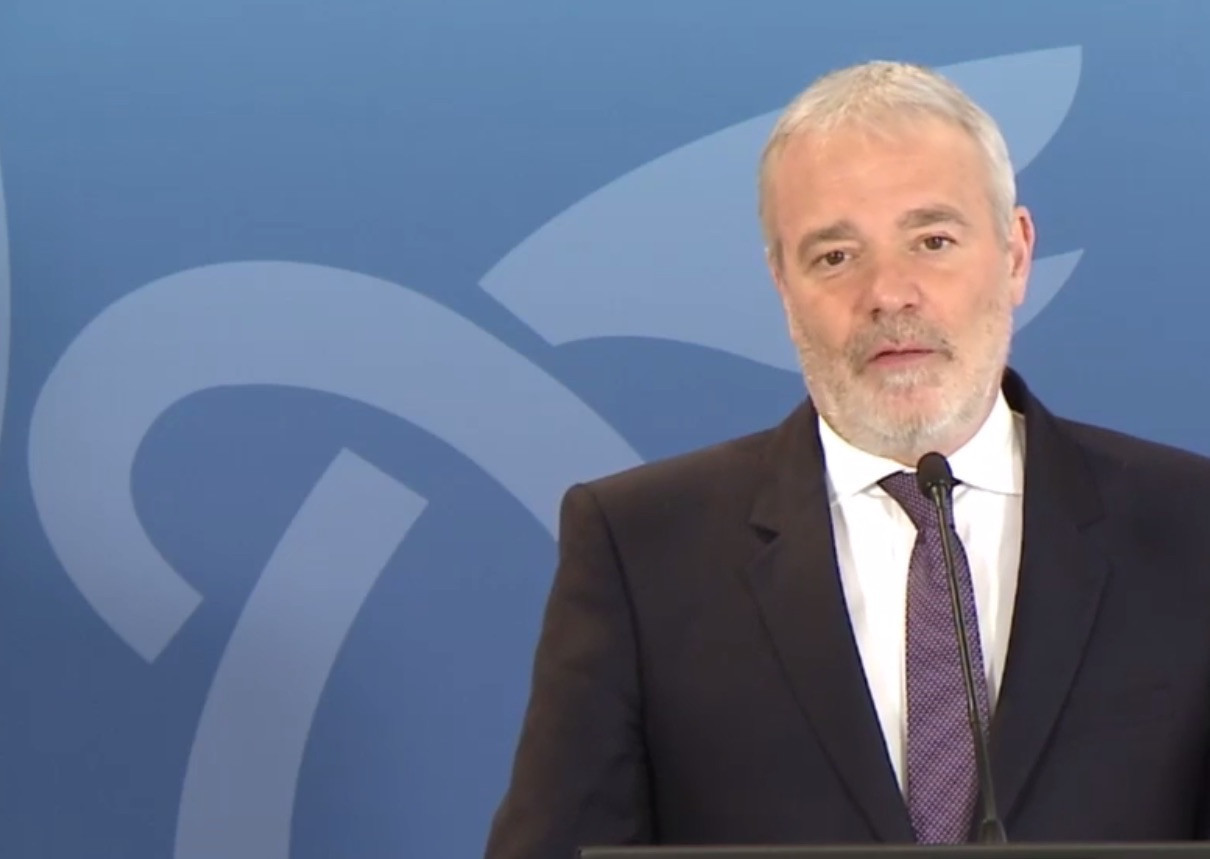Representatives from the OGBL and LCGB unions and business associations including the UEL, the federation of crafts and the construction industry, as well as the government have formed a working group to define the conditions under which confinement could be eased in the workplace. Employment minister Dan Kersch (LSAP) said in a press conference on Tuesday afternoon that, unlike in other countries that were merely issuing guidelines, Luxembourg will impose binding regulations that employers and employees will be required to fulfil. Kersch expects the working group, under the leadership of ITM director Marco Boly, to have completed the task in time for him to make a presentation to cabinet next Friday.
Kersch called the video conference to update media on the partial unemployment measures that the government introduced to help businesses cope with the downturn impact of the coronavirus. The minister explained that some 180,000 salaries were being covered paid by the state to the tune, so far, of some €370 million in advances. But he also warned that some 320 applications had been refused, mainly from the finance and insurance sectors.
Kersch also said that 531 businesses had been revealed to be in arrears with their social security payments for employees, which was “normally unacceptable,” but that the government would not leave them “standing in the rain”.
He also said that the authorities had received complaints that some employees have not received all of the 80% salary they were meant to receive under the partial unemployment scheme and some had even been asked to work. But he stressed that this was a very small minority and that the majority of companies are being very honest. Nevertheless, a clearly angered Kersch said that the government would be seeking to draw up new legislation allowing the authorities to impose heavier sanctions on those businesses who break the rules. He also revealed that the ITM work inspectorate had also imposed penalties on companies that had broken confinement sanctions, and in some cases the police had even been called in to ensure that ITM inspectors could gain access to worksites and places of business.
“My personal opinion is that people who have earned good money over time should not have the same access to public assistance as others.”
Addressing the plight of independents and the self-employed, Kersch said that the partial unemployment measures had been introduced to combat future unemployment. “By definition, the only people who can profit from it are those who are available for the employment market, which most independents are not, and don’t want to be.” he said. Independent business owners in any case profit indirectly from the system, by having their salary costs covered, Kersch added. “My personal opinion is that people who have earned good money over time should not have the same access to public assistance as others.” He appealed for the ability to be able to differentiate in the name of national unity and said that “those with broad shoulders must carry more” of the burden than others. “That has always been my political conviction, and it will remain so.”
